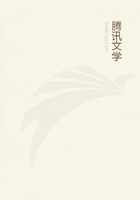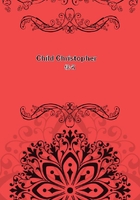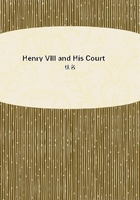Now, those who admit this much argue, with no little force, that the efficacy of prayer is limited to its reaction upon ourselves. Prayer, as already observed, implies belief in supernatural intervention. Such belief is competent to beget hope, and with it courage, energy, and effort. Suppose contrition and remorse induce the sufferer to pray for Divine aid and mercy, suppose suffering is the natural penalty of his or her own misdeeds, and suppose the contrition and the prayer lead to resistance of similar temptations, and hence to greater happiness, - can it be said that the power to resist temptation or endure the penalty are due to supernatural aid? Or must we not infer that the fear of the consequences of vice or folly, together with an earnest desire and intention to amend, were adequate in themselves to account for the good results?
Reason compels us to the latter conclusion. But what then?
Would this prove prayer to be delusive? Not necessarily.
That the laws of Nature (as argued above) are not violated by miracle, is a mere perversion of the accepted meaning of 'miracle,' an IGNORATIO ELENCHI. But in the case of prayer that does not ask for the abrogation of Nature's laws, it ceases to be a miracle that we pray for or expect: for are not the laws of the mind also laws of Nature? And can we explain them any more than we can explain physical laws? A psychologist can formulate the mental law of association, but he can no more explain it than Newton could explain the laws of attraction and repulsion which pervade the world of matter. We do not know, we cannot know, what the conditions of our spiritual being are. The state of mind induced by prayer may, in accordance with some mental law, be essential to certain modes of spiritual energy, specially conducive to the highest of all moral or spiritual results: taken in this sense, prayer may ask, not the suspension, but the enactment, of some natural law.
Let it, however, be granted, for argument's sake, that the belief in the efficacy of prayer is delusive, and that the beneficial effects of the belief - the exalted state of mind, the enhanced power to endure suffering and resist temptation, the happiness inseparable from the assurance that God hears, and can and will befriend us - let it be granted that all this is due to sheer hallucination, is this an argument against prayer? Surely not. For, in the first place, the incontestable fact that belief does produce these effects is for us an ultimate fact as little capable of explanation as any physical law whatever; and may, therefore, for aught we know, or ever can know, be ordained by a Supreme Being.
Secondly, all the beneficial effects, including happiness, are as real in themselves as if the belief were no delusion.
It may be said that a 'fool's paradise' is liable to be turned into a hell of disappointment; and that we pay the penalty of building happiness on false foundations. This is true in a great measure; but it is absolutely without truth as regards our belief in prayer, for the simple reason that if death dispel the delusion, it at the same time dispels the deluded. However great the mistake, it can never be found out. But they who make it will have been the better and the happier while they lived.
For my part, though immeasurably preferring the pantheism of Goethe, or of Renan (without his pessimism), to the anthropomorphic God of the Israelites, or of their theosophic legatees, the Christians, however inconsistent, I still believe in prayer. I should not pray that I may not die 'for want of breath'; nor for rain, while 'the wind was in the wrong quarter.' My prayers would not be like those overheard, on his visit to Heaven, by Lucian's Menippus: 'O
Jupiter, let me become a king!' 'O Jupiter, let my onions and my garlic thrive!' 'O Jupiter, let my father soon depart from hence!' But when the workings of my moral nature were concerned, when I needed strength to bear the ills which could not be averted, or do what conscience said was right, then I should pray. And, if I had done my best in the same direction, I should trust in the Unknowable for help.
Then too, is not gratitude to Heaven the best of prayers?
Unhappy he who has never felt it! Unhappier still, who has never had cause to feel it!















